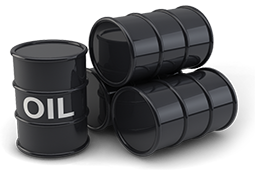
Baker Hughes recovers seized Venezuela site: Update

"Baker Hughes is pleased to see that the matter has been moved to the normal judicial process and its facility has returned to regular operations," the company said.
The takeover of the US company's installations took place yesterday at 5:30am local time and was enforced by members of the municipal government backed by local police, a PdV western division official told Argus.
The official said PdV was not informed by the local government ahead of the operation.
Orlando Urdaneta, mayor of the Canada de Urdaneta municipality near Maracaibo, tells Argus he ordered the takeover of Baker Hughes' local installations because of the US company's "chronic non-compliance with its municipal tax obligations."
Urdaneta apparently ordered the takeover unilaterally without first informing the Zulia state or central government authorities, including the oil ministry. The government's central tax authority Seniat said the dispute is a local matter.
"We executed an administrative measure that temporarily shuts the installations until Baker Hughes pays all of the municipal taxes it owes Canada de Urdaneta," Urdaneta said. "We applied a temporary shutdown measure after exhausting every option for a frank dialogue to resolve the tax delinquency problem."
He added that other companies such as Halliburton pay municipal taxes on time, but Baker Hughes has refused to resolve the matter.
Urdaneta did not specify how much Baker Hughes allegedly owes in local taxes.
Baker Hughes is among a handful of US oil services companies, along with Chevron, that continue to operate in Venezuela under a temporary sanctions waiver. At the end of October, the US Treasury extended the waiver for the companies to operate in Venezuela to 22 January, almost a year from when the US first imposed oil sanctions on the Opec country.
The Treasury's Office of Foreign Assets Control (OFAC) this week published additional sanctions guidance that allows US companies/persons to "pay taxes, fees, and import duties to, and purchase or receive permits, licenses, registrations, certifications, and public utility services from, the Government of Venezuela." Previously it was not explicitly stated that such payments are allowed.
Among the multiple factors behind Venezuela's sharp decline in oil production, particularly from mature areas such as PdV's western division, is a lack of oil services, a problem that became more acute when late president Hugo Chavez took over services companies around 2009.


Gold price edges up as market awaits Fed minutes, Powell speech

Glencore trader who led ill-fated battery recycling push to exit

Emirates Global Aluminium unit to exit Guinea after mine seized

Iron ore price dips on China blast furnace cuts, US trade restrictions

Roshel, Swebor partner to produce ballistic-grade steel in Canada

US hikes steel, aluminum tariffs on imported wind turbines, cranes, railcars

Trump weighs using $2 billion in CHIPS Act funding for critical minerals

EverMetal launches US-based critical metals recycling platform

Afghanistan says China seeks its participation in Belt and Road Initiative

Energy Fuels soars on Vulcan Elements partnership

Northern Dynasty sticks to proposal in battle to lift Pebble mine veto

Giustra-backed mining firm teams up with informal miners in Colombia

Critical Metals signs agreement to supply rare earth to US government-funded facility

China extends rare earth controls to imported material

Galan Lithium proceeds with $13M financing for Argentina project

Silver price touches $39 as market weighs rate cut outlook

First Quantum drops plan to sell stakes in Zambia copper mines

Ivanhoe advances Kamoa dewatering plan, plans forecasts

Texas factory gives Chinese copper firm an edge in tariff war

Energy Fuels soars on Vulcan Elements partnership

Northern Dynasty sticks to proposal in battle to lift Pebble mine veto

Giustra-backed mining firm teams up with informal miners in Colombia

Critical Metals signs agreement to supply rare earth to US government-funded facility

China extends rare earth controls to imported material

Galan Lithium proceeds with $13M financing for Argentina project

Silver price touches $39 as market weighs rate cut outlook

First Quantum drops plan to sell stakes in Zambia copper mines

Ivanhoe advances Kamoa dewatering plan, plans forecasts

















